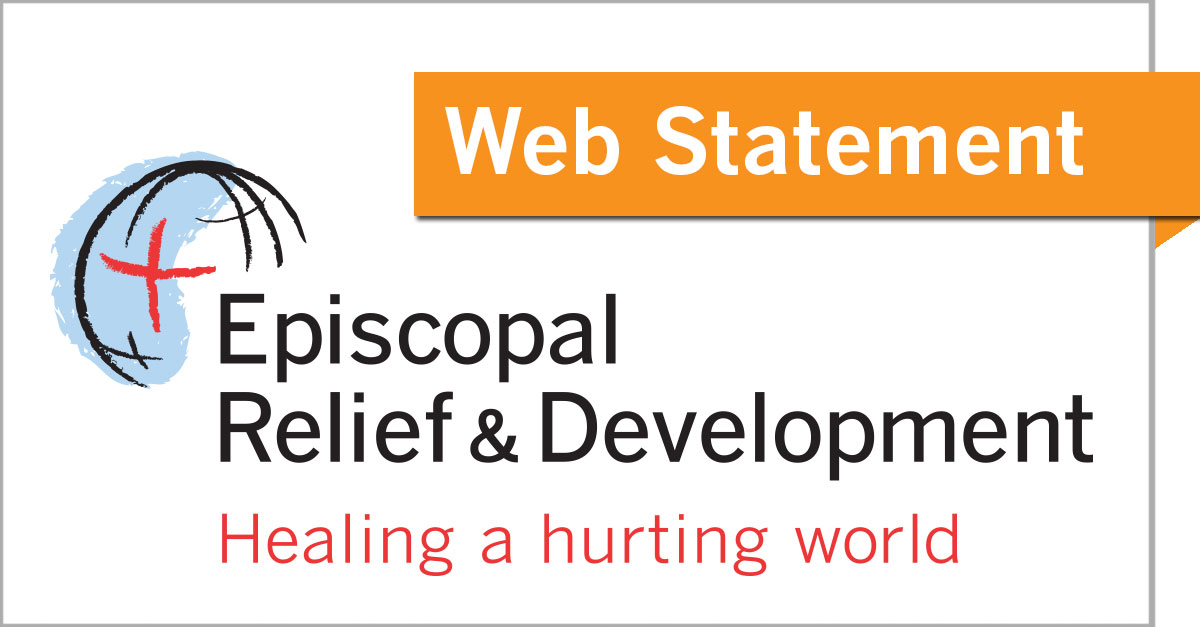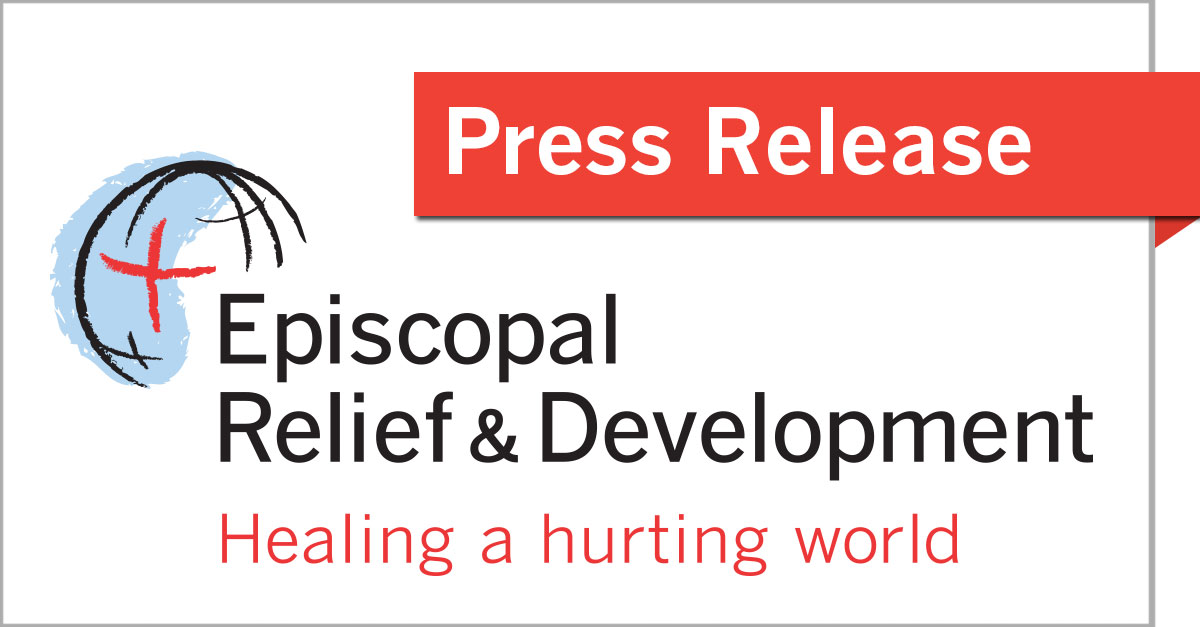Supporting Episcopal Diocese of Jerusalem’s Response in Gaza
Episcopal Relief & Development is supporting the Episcopal Diocese of Jerusalem’s Al-Ahli Arab Hospital in Gaza City with funding for food and fuel as it responds to urgent needs during the current crisis.
- 9/8: [ACNS] Anglican-supported Gaza hospital faces a future treating severe injuries, trauma
- 8/20: Episcopal Relief & Development Reaffirms Support
- 7/17: Supporting Episcopal Diocese of Jerusalem’s Response in Gaza
Anglican Communion News Service reports that the Rt. Rev. Suheil Dawani has issued a statement in response to international support for Al-Ahli Arab Hospital in Gaza City during the most recent outbreak of conflict in the region.
“The bishop was writing primarily to thank the Communion for the ‘outpouring of support from our development partners, churches and individuals’ after a humanitarian appeal for Al-Ahli Hospital on July 15th,” the article states.
Episcopal Relief & Development is one of several Anglican Communion agencies supporting Al-Ahli Hospital through the Diocese of Jerusalem.
Episcopal Relief & Development reaffirms its support for Al-Ahli Arab Hospital in Gaza, an institution of the Episcopal Diocese of Jerusalem, as it responds to critical humanitarian needs during the current conflict.
The organization’s support has enabled Al-Ahli Hospital to procure fuel to run its generators, which are crucial during frequent and prolonged electricity outages, and to provide food parcels to community members in need, in addition to patients and staff.
“Since the beginning of the crisis, Al-Ahli Hospital staff have maintained an around-the-clock presence at the hospital, receiving wounded people and providing them with the critical medical care that they need,” stated the Diocese of Jerusalem’s August 15 situation report.
According to the same report, the hospital has received 3,300 emergency cases since the current crisis began in mid-July and is presently treating 30 severely injured people in in-patient care. Al-Ahli receives on average 55 conflict-related burn cases per day, and an average of 150 new patients per day – mostly children – suffering from chest infections, diarrhea, rashes and scabies due to inadequate hygiene (overcrowding combined with lack of refuse collection) and shortages of water and food.
Temporary cease-fires provide time for hospital staff to assess needs and resources, and for ambulance workers and other rescuers to bring injured people to care centers. Many of Gaza’s hospitals and clinics have sustained damage and others have been closed because of lack of staff and supplies or being in insecure locations. Consequently, the remaining centers are working beyond capacity to meet urgent needs.
Looking ahead, Al-Ahli identifies providing psychosocial care for women and children as a top priority, in addition to ongoing medical care for burns and other injuries. Shortages of fuel and medical supplies threaten to limit the hospital’s ability to respond to emerging needs.
As of August 20, according to UN OCHA, 1,999 Palestinians (including 1,417 civilians) and 67 Israelis (including three civilians) have died in the renewed violence. The WHO reports that more than 10,000 Palestinians have been injured, and UNRWA states that 400,000 people are currently displaced.
“I urge all Episcopalians to continue to keep in their prayers those affected by conflict in the Holy Land,” said Rob Radtke, President of Episcopal Relief & Development. “Please also pray for all who are working steadfastly to relieve suffering and build peace – in the Palestinian Territories and Israel, and throughout the region in these challenging times.”
To enable Episcopal Relief & Development to continue its support of the Episcopal Diocese of Jerusalem’s response to urgent needs, please contribute to the Middle East Fund.
Episcopal Relief & Development is supporting the Episcopal Diocese of Jerusalem’s Al-Ahli Arab Hospital in Gaza City with funding for food and fuel as it responds to urgent needs during the current crisis.
Despite structural damage to the hospital from the impact of Israeli airstrikes, Al-Ahli staff have maintained round-the-clock presence and care for those who have been wounded. Further adding to the strain are shortages in medical supplies and fuel for electrical generators. The hospital’s food supplies are stretched as they provide for patients, their families, hospital staff and those from the community seeking aid.
“We are helping our partner in Jerusalem care for those most vulnerable, particularly the injured and women and children affected by the airstrikes in Gaza,” said Abagail Nelson, Episcopal Relief & Development’s Senior Vice President for Programs. “Our assistance will help the hospital provide life-saving treatment and compassionate aid, and our prayers are with them as they carry out their work in very difficult conditions.”
The Rt. Rev. Suheil Dawani, Bishop of the Diocese of Jerusalem, noted in correspondence with Episcopal Relief & Development that Al-Ahli provides care to the community regardless of faith or ability to pay, including psychosocial support for patients and families severely traumatized by the violence.
“Civilians exposed to heavy bombing have been killed, injured, traumatized, in some cases left homeless and without food,” Dawani stated. “A few children have lost their entire families.”
As of July 16, according to UN OCHA, 1,585 Palestinians, including 717 women and children, have been injured since the airstrikes began on July 7, 2014. In addition, 214 Palestinians have been killed, including at least 164 civilians, of whom 44 were children and 29 women.
Since the escalation in violence, one Israeli has died from shrapnel wounds sustained while visiting Israeli soldiers at the Gaza border, and the Magen David Adom Israel reports it has treated six others who were seriously or moderately injured by shrapnel and fires caused by direct rocket strikes.
“God weeps at this war between his children,” Presiding Bishop Katharine Jefferts Schori told Episcopal News Service on July 15. “We weep as we watch the destruction, and we should be storming heaven with prayers for peace.”
Episcopal Relief & Development’s long-standing partnership with the Episcopal Diocese of Jerusalem has provided support for Al-Ahli Hospital in Gaza and St. Luke’s Hospital in Nablus, in addition to emergency assistance during periods of increased conflict.
Al-Ahli is an 80-bed hospital in Gaza City, one of the Gaza Strip’s three main population centers. With a total area of 139 square miles and a population of over 1.8 million people, Gaza is one of the most densely populated areas on earth. The Palestinian Ministry of Health reports that there are 30 hospitals in Gaza, with some operated by the Palestinian government and others by local and international faith groups and non-governmental organizations. UN OCHA reported in 2010 that more than half of Gaza’s hospitals (15 out of then 27) had suffered damage during Israel’s Operation Cast Lead in the winter of 2008-09.
“Please continue to pray for our partners in the Holy Land and the communities they serve, and for all those who are affected by the conflict,” said Episcopal Relief & Development’s Abagail Nelson.
Donations to the Middle East Fund will sustain Episcopal Relief & Development’s partnership with the Episcopal Diocese of Jerusalem and ensure continued support for the Church’s presence and life-giving work in the Holy Land.

 August 20, 2014
August 20, 2014 July 17, 2014
July 17, 2014
